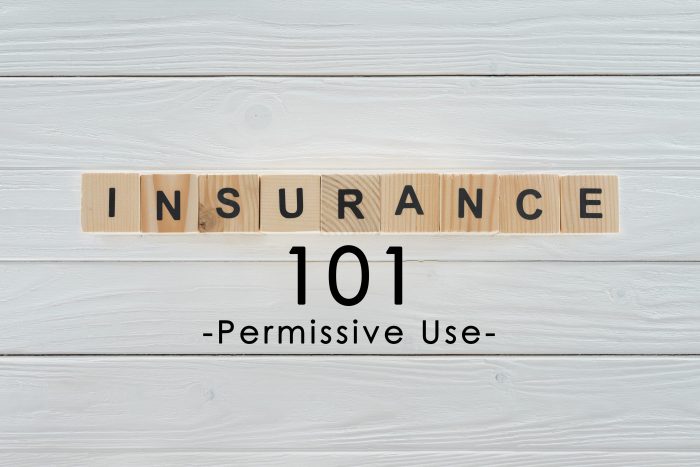Insurance Term of the Day: Permissive Use

You take your friend out for dinner after he says he had a rough day. While at dinner, you offer to buy him a shot to ease the tension he feels. However, your friend declines, deciding liquor might not help him feel better. You decide, “That’s fine, buddy, I’ll take your shot for you.” This worked out well for the both of you; you’re feelin’ great and you’ve got your friend rolling at your jokes. Five shots later, you realize you drove your car, but you can’t drive. Your best option is to let your friend drive you home.
Permissive use on an insurance policy means that the insured granted another person permission to drive the vehicle who is not listed on the policy as a driver. Depending on the company, some insurance policies will insure “household members,” some will not. The meaning of a “household member” is usually included in the definitions section of your policy. Typically, your policy will include any licensed person who is related to you by blood, marriage, or adoption. Any person driving your car who is not considered a household member by insurance definition, or specifically listed as an additional driver, is considered a permissive use driver.
It’s important to recognize what limits regarding permissive use drivers are included on your policy. If your policy does not have high limits for permissive drivers, and there is an accident, you could be subject to paying additional medical fees out of pocket. Make sure to thoroughly read over your policy terms and see what coverages, if any, are included. Before you allow a friend permission to borrow your car, be sure you’ve read and understand your policy first.










